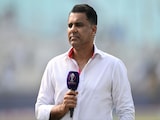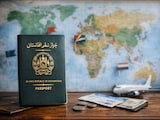The current world order is growing increasingly unstable for a variety of reasons. In the midst of the ongoing wars in West Asia and Eastern Europe, the spectre of World War III is haunting the entire world. The involvement of the US in both the Russia-Ukraine and Iran-Israel conflicts, as well as Iran's warning to close the Strait of Hormuz, has further fuelled this fear. However, regardless of the above tensions, the claim that we find ourselves on the verge of another world war is an exaggeration of current dynamics and an underestimation of the structural, historical, as well as geopolitical gravity of the present times. Despite the current state of global instability, the structure of the modern international system, the emergence of middle powers from the Global South, and the increased role of regional organisations make a full-scale or complete war unlikely.
An in-depth evaluation of the contemporary global landscape requires an evaluation of what led to the past World Wars. During the early 20th century, much of Africa, Asia and Latin America were colonies of the Western powers, acting not as sovereign actors but as territories forcibly dragged into the theatre of war, their destinies being shaped not by their own interests but by imperial powers. The sending of Indian troops to Europe or the forceful engagement of African colonies in the imperial wars are examples of the fact that both World Wars were the creation of a system of compulsion that dominated through colonial coercion, which were results of the international order that was extremely Eurocentric and imperialistic. Thus, the major distinction between today's crises and the World War I and II eras is the rearrangement of the international structure and the subsequent rise of the Global South. The Global South countries are now independent and sovereign states, which enables them to determine political, economic, and security policies on their own.
Even so, in current times too, European or American involvement plays a huge role in shaping global or regional conflicts. For instance, nobody feared that the recent India-Pakistan clash after the Pahalgam terror attack could lead to a Third World War as there was no direct involvement of any Western powers. On the other hand, in the ongoing Russia-Ukraine and Iran-Israel conflict, where the interests of Western powers are at stake, there has been continuous discussion about the possibility of a third world war.
The Eurocentric understanding of conflict does not take into consideration the altered reality of the present times, where the Global South Countries, which comprise almost 88% of the world's population, have their own diplomatic priorities that do not always coincide with those of Western countries.
The growing number of middle powers from the global south, such as India, Brazil, Mexico, South Africa, and an increasing number of members of the Association of Southeast Asian Nations (ASEAN) and the African Union, have defied Western narratives and instead prioritised non-alignment, strategic autonomy and developmental goals in shaping their foreign policies. Consider the case of India, which has criticised Israel's actions in Gaza while simultaneously retaining its ties with Israel. The South African vote against the isolation of Russia in multilateral fora or even Brazil's stance in the Iran-Israel dispute show that the Global South is not just a passive spectator but plays an important role in defining contemporary conflicts.
Also, the military capabilities of these middle powers have improved tremendously. The blue-water navy of India, the growing aerospace and defence sector of Brazil, the modernising maritime and air defence operations of Indonesia, and the domestic missile and drone systems of Iran and Turkey demonstrate that the middle powers have developed credible options to protect their own interests and limit the role of great powers.
The war between Russia and Ukraine has so far been geographically localised to Eastern Europe. It is still not a direct military conflict between leading global powers. China, which is generally regarded as a strategic partner of Russia, has kept a cautiously neutral position between its economic well-being and global stability. At the same time, the Iran-Israel conflict, which has gained new levels of sophistication with the ongoing drone attacks by Israel and retaliation by Iran, has been highly volatile. There is an additional deadly dimension to this, and that is the US presence and the threats by Iran to close the Strait of Hormuz. The war between Israel and Iran has so far been a battle mainly confined to West Asia. The conflict has been successful in not dragging other regional and global players into the region, despite the possibility of a wider conflict, considering the strong backing of Israel by the US and the sponsorship of Hamas, Hezbollah and Houthis by Iran. It is not an indicator of a world war, but the symptom of a warped, fragmented multipolarity, where regional theatres are dominated by local power dynamics.
However, this new multipolarity has also demonstrated the ongoing inability of traditional multilateral institutions to overcome world problems in an effective manner. International institutions such as the United Nations are frequently unable to resolve fundamental disputes, even when the conflict is of such magnitude that it has brought the Security Council to a standstill on a number of occasions in the cases of both the conflict in Ukraine and the war in Gaza. In much the same way, the World Health Organization, despite its essential role, failed in its coordination of anything close to an equal global response to the COVID-19 pandemic. The inability to reform its outdated trade regulations has turned other international institutions, including the World Trade Organization, into a paralysis machine, and international climate conferences under the umbrella of the UNFCCC are still making ambitious pledges with limited follow-through.
The ideological polarisation that characterized the 20th-century fascism-versus-democracy-versus-capitalism-versus-communism framework has diminished to a great extent in present times. There are no grand ideological narratives that pit countries against each other. Nations are no longer interested in ideology-driven block construction, instead turning to more self-interested, frequently transactional approaches to diplomacy. Consequently, there is no distinct traditional architecture of a world war that comprises the rigidity of alliances, the dichotomy of ideology and the imperial conquest.
Nonetheless, the nuclear aspect cannot be ignored when analysing the possibility of World War III. The world today has quite a few states armed with nuclear bombs, namely, Russia, the US, China, France, the UK, India, Pakistan, Israel and North Korea. Even though it is far from being a perfect deterrent, the doctrine of Mutual Assured Destruction (MAD) has been rather effective.
Whereas a conventional world war would be hard to imagine today, systemic global crises are imminent and rapidly increasing threats. Issues like climate change, food insecurity, pandemics, and cyber warfare cannot be disregarded as major problems because they can destabilize a whole society without any military interaction.
In sum, the international structure of the two World Wars is completely different from the current world order, which is fragmented but also highly interconnected and dependent. Regional conflicts will continue to erupt in future, but they will be checked by local balances of power, the enhanced strength of smaller powers, and costly interdependence. Most importantly, until the Global South consents and participates, a conflict cannot truly be declared the Third World War, even if it does escalate and spread across wide areas of the world.
(Shantesh Kumar Singh is with the Centre for International Politics Organisation and Disarmament, School of International Studies, Jawaharlal Nehru University. Ravi Shankar Raj is a research analyst with the Roger Hansen Institute for Global Interchange of Perspectives, Netherlands)
Disclaimer: These are the personal opinions of the author















